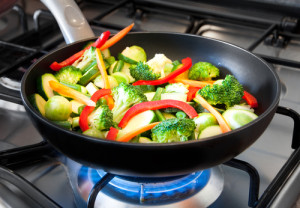August 2015
Why You Should Have Your Water Heater Inspected
 With some things in life, timing is everything. Other times, timing just doesn’t matter.
With some things in life, timing is everything. Other times, timing just doesn’t matter.
If a local radio station is giving away $10,000 to the “100th lucky caller,” for example, being 99th just won’t cut it. Or, take applying for your first job right out of college. You could have the world’s best resume, but unless you apply somewhere that needs what you bring to the table right then and there, your search will probably need to continue.
Okay, so how about when timing really makes no difference at all? Well, scheduling a water heater performance and safety inspection definitely falls into that category. That’s especially true if you have a gas water heater and it hasn’t been professionally inspected in at least a year.
Here’s the logic behind “any time scheduling”:
- Your water heater is designed, on average, to last 10 -12 years. In the overall scheme of things, that’s not a very long time. So while you have it, doesn’t it make sense to give it the best care possible?
- Water heater storage tanks are prone to interior corrosion over time, especially if you have hard or acidic water. Corroded water can bring about internal cracks, and cracks can lead to gas and carbon monoxide leaks.
- During a water heater inspection, your professional Boden plumber will also check your thermostat to make sure your water is hot enough without the risk of scalding.
- Is your water heater insulated? You might want to consider getting that done, too, as it can cut your water heating costs by about 9%.
- We’ll also check your sacrificial anode, a device used to help prevent internal corrosion. By replacing it at proper intervals, we can help extend the lifespan of your system.
These are just a few examples of what goes into a water heater performance and safety inspection by Boden. To help better protect your investment, home, and family, we encourage you to contact us to schedule service today.
The Pros & Cons of Cooking on a Gas Stove
 If you spend enough time watching the Food Channel, you know that all the top cooks and chefs use gas stoves and ovens to prepare their culinary wonders.
If you spend enough time watching the Food Channel, you know that all the top cooks and chefs use gas stoves and ovens to prepare their culinary wonders.
And now, perhaps, you’re past the stage of curiosity and seriously considering switching from electric to gas, but not until you’re sure you’re making the right decision. Well, to help you along in the process, here are the top pros and cons of cooking with gas.
Gas Stove Pros
- It’s faster. You turn on a burner, it’s already hot, and away you go.
- Readily adjustable. Want to switch from medium to simmer? Just turn the know and eyesight alone will take you exactly where you want to go.
- More uniform cooking. Gas flames cook more evenly than an electric burner because the flames spread themselves along the bottom of a pot or pan.
- Lower cost. Assuming you already have natural gas, it will cost you less to operate a gas vs. electric stove.
Gas Stove Cons
- Higher upfront cost. And yet, you will recoup the difference over time in lower energy costs.
- Safety concern. You have to be diligent when operating a gas stove or oven to make sure it turns on. If not, then it’s still releasing gas into the air and, if left unattended, real and serious problems can result.
And yes, if you switch from and electric to gas range and don’t already have a gas connection in your kitchen, you’ll need that too. And that’s a service Boden is ready and able to provide. We are licensed plumbers and gas fitters, and that’s your assurance of the right combination of skill and strict adherence to safety standards to ensure the job meets or exceeds your expectations. Contact Boden today to learn more and, at the same time, we’ll be happy to answer all your questions.
Recent Comments